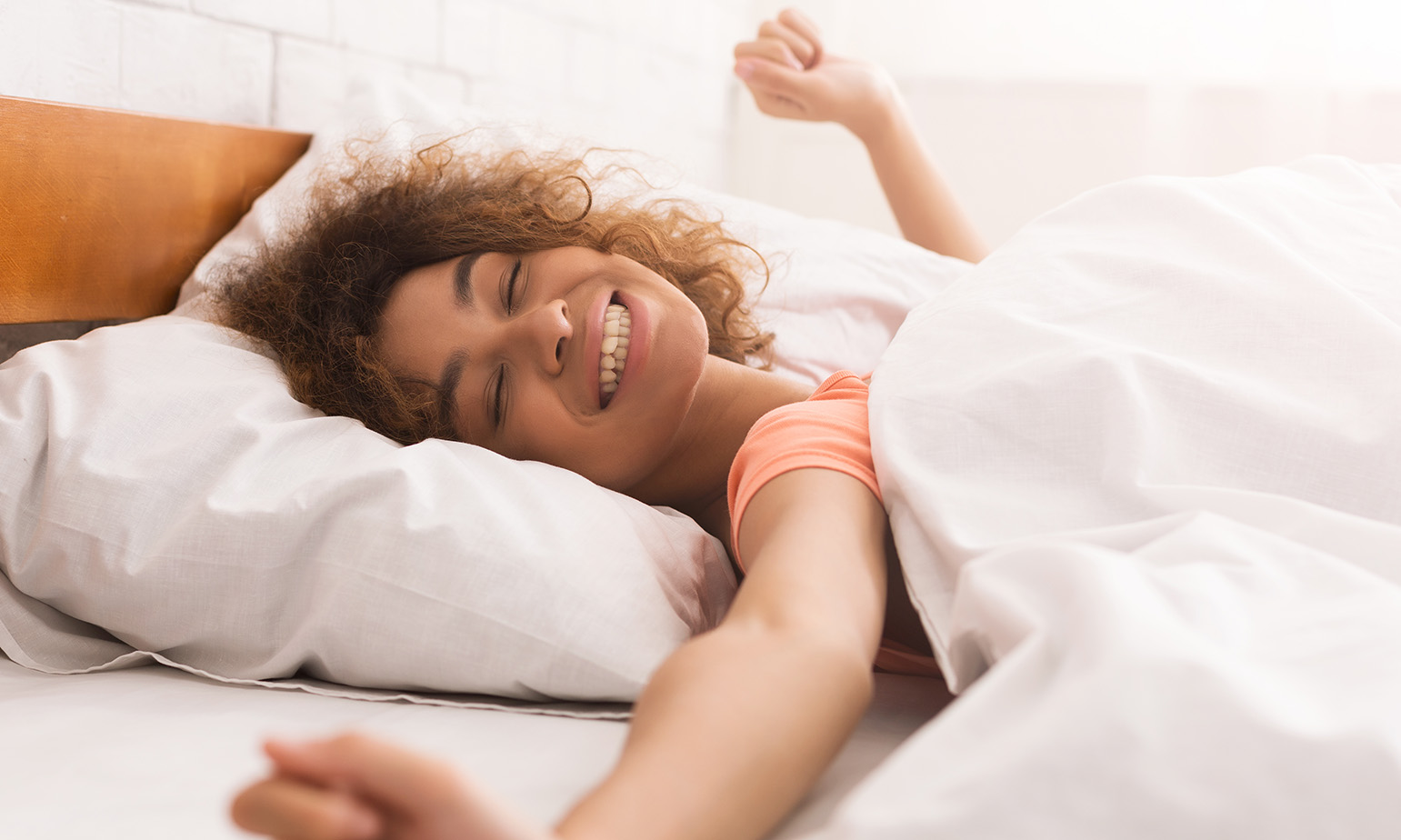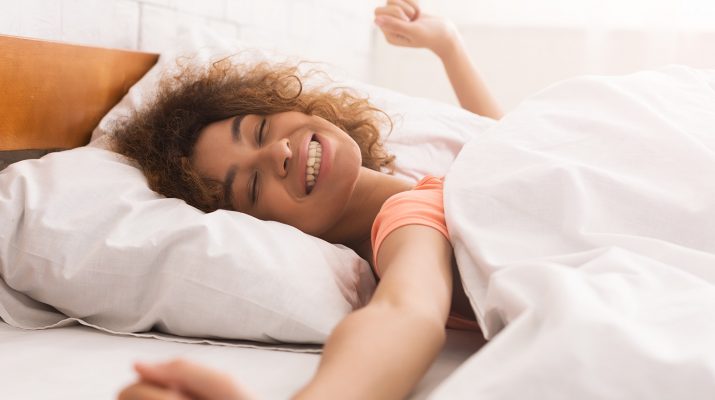Stress is a constant part of everyday life. The overwhelming feeling of needing to do so much and having too much on the mind can elicit physical and emotional reactions causing stress and anxiety. The body’s response of increasing the rate of respiration, heartbeat and pulse, hormonal production, and muscle tension can have an effect that may last for quite some time after the stressful event has subsided. Evening relaxation techniques can help to deal with day-to-day stress by promoting sleep and decreasing anxiety.

11 Evening Relaxation Techniques
1. Control the environment
A necessary step to promote better relaxation is to ensure that the environment is free from any stressors. The ambiance while doing any bedtime relaxation technique should be calming, and free from loud noise and the room lights are dimmed. Lights can stimulate melatonin production which promotes alertness and arousal. Mask noise by using earplugs, soothing sounds, or white noise. A slightly cool room around eighteen degrees Celsius and proper ventilation is ideal for relaxation.
2. Watching food intake
Eating heavy meals close to bedtime and some food types like those with high sugar content, caffeine, and spicy food can cause a feeling of irritability by stimulating the sympathetic response. Some foods can promote relaxation such as chamomile tea and milk because they contain theanine or tryptophan, amino acids that affect serotonin production for sleep and relaxation.
3. Lifestyle changes

Exercising regularly can help promote relaxation but disrupt sleeping patterns because it raises the body temperature, adrenaline levels, and cortisol hormones which mimic the body’s response to stress. Avoid performing strenuous exercises at least four hours before bedtime to allow the body enough time to cool down. It is also important to quit smoking because the nicotine in cigarettes acts as a short-acting stimulant making it difficult for the body to relax. If you are having trouble quitting, you can seek guidance at Anne Penman about their laser therapy. Using phones, tablets, and computers to read or watch TV so close to bedtime can stimulate the mind. Try listening to soothing music or audiobooks instead.
4. Deep breathing exercises
Deep breathing exercises are the simplest, widely practiced form of relaxation technique. Full, cleansing breaths help take the mind off from stress and help to focus instead on breathing. It deliberately slows down the respiration rate by inhaling deeply through the nose, holding the air in the lungs for about three seconds, and then exhaling slowly through the mouth. This can be paired with other evening relaxation techniques to enhance calming effects.
5. Meditation
Meditation brings about the value of being fully focused on the present moment without over-analyzing the situation. It effectively reduces stress, anxiety, and other negative emotions by concentrating on the current rather than being upset about the past or future. By having a point of focus like a mantra or an image, meditation can enhance feelings of joy and relaxation and reduce negativity and stress.
6. Progressive muscle relaxation
Progressive muscle relaxation is a widely used method for stress relief by systemically alternating contraction and relaxation among different muscle groups in the body. It effectively resolves the muscle tension that accompanies stress by making the mind focus on a specific body part at a time, starting from the feet and working their way up to the head. It starts by feeling each muscle group, sensing their weight and consciously relaxing them. With deep breathing exercises, these synergistic evening relaxation techniques can offer greater stress relief.
7. Guided imagery
Guided imagery is a variation of meditation that needs imagining a place or a scene that evokes feelings of being calm and at peace. This is one of the evening relaxation techniques that can go together with recordings of voice or music via CD or app to guide the user to proper visualization. Most people try to imagine their favorite vacation spot as their happy place. With their eyes closed, they imagine that peaceful place vividly as if they were there. An accompanying music can help visualize the restful setting and let the worries drift away.
8. Yoga

Evening yoga poses or moon salutations are very popular evening relaxation techniques. The various moving and stationary positions can provide a natural compensation to stress while improving the body’s blood circulation. Together with deep breathing exercises, poses like Downward Facing Dog and Child’s Pose highlight slow, steady movements with gentle stretching to provide better stress relief.
Learn more: 10 Good Yoga Poses For Relaxation
9. Tai chi
Tai chi is a variation of martial arts with a series of slow, flowing, dance-like body movements that emphasize focus, relaxation, and the circulation of chi or vital energy throughout the body. It is an effective way to calm the mind and condition the body while reducing stress through low-impact exercises. Tai chi is a combination of meditation, focusing on the present, and deep breathing exercises.
10. Massage therapy
Massage therapy by an expert therapist, equipment like a special chair, bed or tub, or self can provide deep relaxation by relieving muscle tension and improving blood circulation. Hot showers help relax the body by dilating the blood vessels, soothing tight muscles, and increasing oxytocin to ease anxiety.
11. Aromatherapy
Aromatherapy has been used since ancient times by Egyptians. Scents that are associated with sleep and relaxation such as lavender, chamomile, juniper, and rose can be incorporated into oils or candles. The olfactory receptors communicate with the limbic system, which are parts of the brain that are associated with emotions. Breathing in the scents can affect the brain similar to how sedative medications work. It can also work with other evening relaxation techniques to promote stress relief.
Evening Relaxation Exercise
Check out Good Relaxation Video Courses for more relaxation exercises.
Evening relaxation techniques can help users maintain a healthy weight, feel more energized after sleep, and optimize physical and mental functioning. Most of these techniques can be done safely alone but some may need the assistance of professionals and instructors. If the techniques do not result in reduced stress and a feeling of relaxation, seek medical advice. Stress is inevitable but can be managed through these relaxation techniques that can cause feelings of being energized, refreshed, and ready to take on another day.

